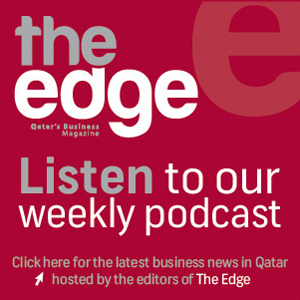Understanding airline loyalty programmes and frequent flyer schemes
Jim Davidson, CEO of Farelogix which offers airline distribution technology platform, speaks to The Edge about airline loyalty programmes and latest trends in this industry. The air travel technology company’s customer base includes many of the world’s big airlines, including American Airlines, Delta Air Lines, Air Canada, Emirates, Qatar Airways and Lufthansa.
The air travel industry is undergoing massive transformation with airlines no longer competing solely on flight schedules and fares, but rather on ability to offer enhanced shopping and travel experience to customers. This has created more avenues for airlines to generate profits through ancillary revenue and merchandising. The global merchandising revenue was projected to cross USD42 billion in 2014 and it is expected to grow manifold in coming years.
How do the loyalty programme and frequent flyer miles schemes work?
The basic premise is to reward travellers as they take flights on airlines. Generally the basic amount of award miles (“earning” of mile/points) is determined by distance of the flight. Premium or bonus miles may be awarded to higher status frequent flyers. Travellers accrue miles/points, which generally can be used (‘burning” miles/points) for free or reduced rate travel on the specific airline.
How important are they for airlines to generate revenue?
While the importance of loyalty programmes is generally based on the individual airline, these types of programmes are of significant value and importance to the airlines – especially airlines that cater to business travellers. Travellers that participate in frequent flyer programmes do in fact generate significant high yield revenue for the airlines; and the frequent flyer programmes also help in generating repeat travel business.
Affinity credit cards also represent quite a significant revenue source for many legacy airlines.
How have these schemes been received by customers in the airline industry?
Frequent flyer programmes are generally perceived as being positive for the frequent business traveller. They are less popular with the occasional leisure traveller. As airlines apply varying degrees of capacity limitations on the utilisation of redeeming miles/points for air travel, many times travellers become frustrated by not being able to find available travel dates to redeem.
Do you think terms and conditions related to these schemes are often very complicated for customers to take full benefit of them?
As mentioned earlier, many consumers have difficulty finding available flights where they can redeem miles/points for travel. This is frustrating for travellers as there is little transparency in how airlines allocate flights/capacity available for miles/points redemption. Additionally, “black-out dates” and formulas used by airlines to determine miles/points earned and burned are also not consistent across airlines.
How can these schemes be made more credible and customer friendly?
Some airlines are beginning to look at providing miles/points earned at the time of shopping, which gives the consumer more insights into what they could potentially earn for taking specific flights, rather than having to wait until after the flight is taken when most miles/points are awarded. This adds more transparency and customer choice. Other airlines are bundling “bonus” miles/points for certain fare groups or fare brands.
Do you have any specific observation about gulf airlines offering these schemes?
While I cannot speak to the decisions made by any one airline, understanding the leisure/corporate customer mix is essential for any airline developing or enhancing their loyalty programme. Load factor, route structure, and airline branding can also have a significant impact in the design of an airline loyalty programme.
Are there any latest global trends in this field?
Integrating loyalty programme benefits into fare brands, using miles/points to purchase airline ancillaries, and moving award information into the shopping process to create greater visibility are all trends we are seeing in the market.
Like this story? Share it.






